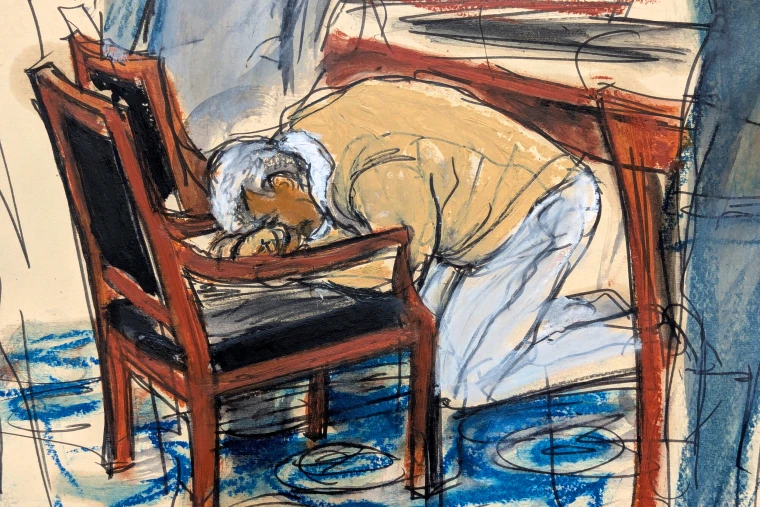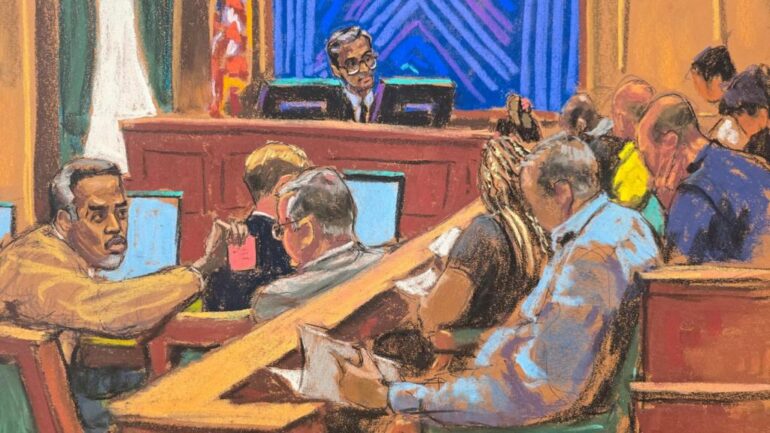Sean “Diddy” Combs will remain behind bars following a federal judge’s decision to deny bail after a high-profile trial that ended with a mixed verdict. The music mogul was acquitted of the most serious charges—racketeering and sex trafficking—but was found guilty on two counts of transporting individuals across state lines for prostitution. The verdict and subsequent bail denial mark a dramatic chapter in the downfall of one of hip-hop’s most influential figures.
The trial, which lasted nearly two months, centered on disturbing allegations from two women—Cassie Ventura and another identified only as “Jane”—who testified that Combs coerced them into drug-fueled sexual encounters with male sex workers. Prosecutors painted a picture of a decades-long pattern of abuse, manipulation, and intimidation, while Combs’ defense argued that the relationships were consensual and that the government had overreached in its pursuit of a conviction.
Despite being cleared of the racketeering and sex trafficking charges, the guilty verdict on the prostitution-related counts carries serious consequences. Combs now faces a maximum of twenty years in prison, though sentencing guidelines suggest a lower range. His legal team had hoped that the acquittals would be enough to secure his release until sentencing, offering a multimillion-dollar bond and strict travel restrictions. But Judge Arun Subramanian rejected the request, citing Combs’ history of violence, lack of remorse, and the risk he poses to the community.
The courtroom was tense as the verdict was read. Combs, visibly emotional, mouthed “thank you” to the jury before turning to his family and saying, “We will make it through this.” His mother and children, who had been present throughout the trial, left the courthouse in silence after the judge’s ruling. Outside, a crowd of supporters and critics gathered, reflecting the polarizing nature of the case and its broader cultural implications.
 The trial has already had a ripple effect across the entertainment industry. Multiple civil suits remain pending against Combs, and the verdict is expected to influence how those cases proceed. While his defense team has framed the outcome as a partial victory, prosecutors and victims’ advocates argue that the conviction is a long-overdue step toward accountability.
The trial has already had a ripple effect across the entertainment industry. Multiple civil suits remain pending against Combs, and the verdict is expected to influence how those cases proceed. While his defense team has framed the outcome as a partial victory, prosecutors and victims’ advocates argue that the conviction is a long-overdue step toward accountability.
A virtual hearing is scheduled for next week to determine whether Combs’ sentencing date, currently set for the fall, will be expedited. Until then, he will remain at the Metropolitan Detention Center in Brooklyn, where he has been held since his arrest.
As the dust settles, the legacy of Sean “Diddy” Combs hangs in the balance. Once celebrated as a cultural icon and business mogul, he now faces the possibility of spending years behind bars. The verdict may not have delivered the full weight of the prosecution’s case, but it has undeniably altered the trajectory of his life—and his legacy.



